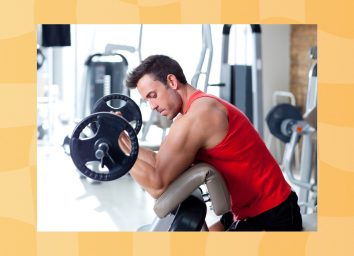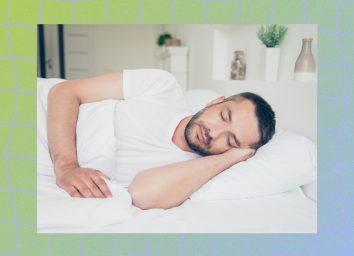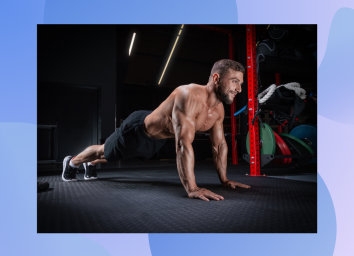The #1 Worst Time to Exercise If You Love to Sleep, New Study Says
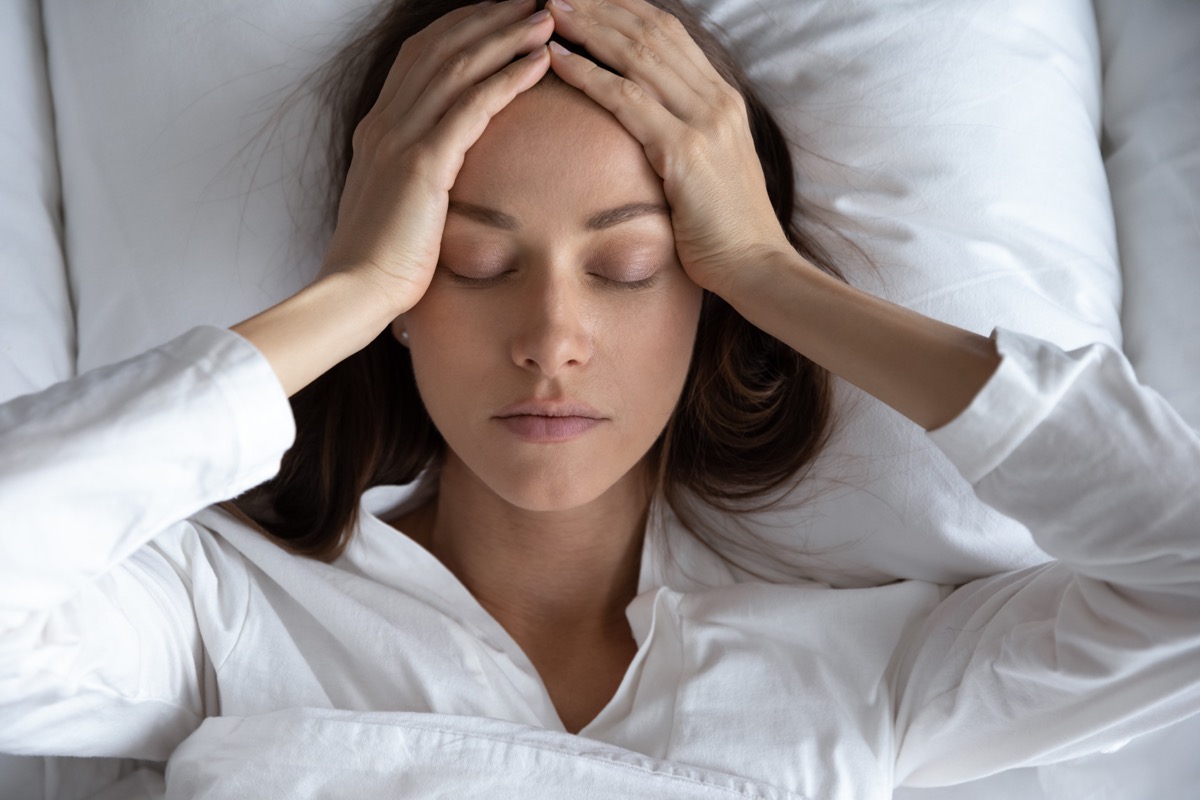
Consistent exercise and sleep are pillars of robust health, both physically and mentally. When we don't get enough sleep, we're irritable, groggy, and no help to anyone, the Sleep Foundation confirms. Similarly, exercise has been shown time and time again to be an essential aspect of healthy living, the CDC says, as well as graceful aging.
While the full extent of the relationship between sleep and exercise remains somewhat of a mystery to the scientific community, most doctors agree that consistent exercise generally promotes better sleep. While identifying a specific explanation for this is proving to be difficult, there is enough solid evidence that links working out with better sleep, Charlene Gamaldo, M.D., medical director of Johns Hopkins Center for Sleep at Howard County General Hospital, tells Hopkins Medicine.
However, it isn't quite as simple as "more exercise equals more sleep." When it comes to topics as important as sleep and exercise, the devil is in the details. When is the best time of day to work out for better sleep? Similarly, is there a specific type of exercise that you should be doing to log better Z's?
These are important questions, especially as more Americans than ever continue to report sleepless nights throughout the COVID-19 pandemic. Luckily, a fascinating new report from Concordia University published in Sleep Medicine Reviews is offering up some fresh potential answers. Read on to learn more about what the researchers concluded, including the time of day when exercising may ruin your sleep that night.
What this new study found
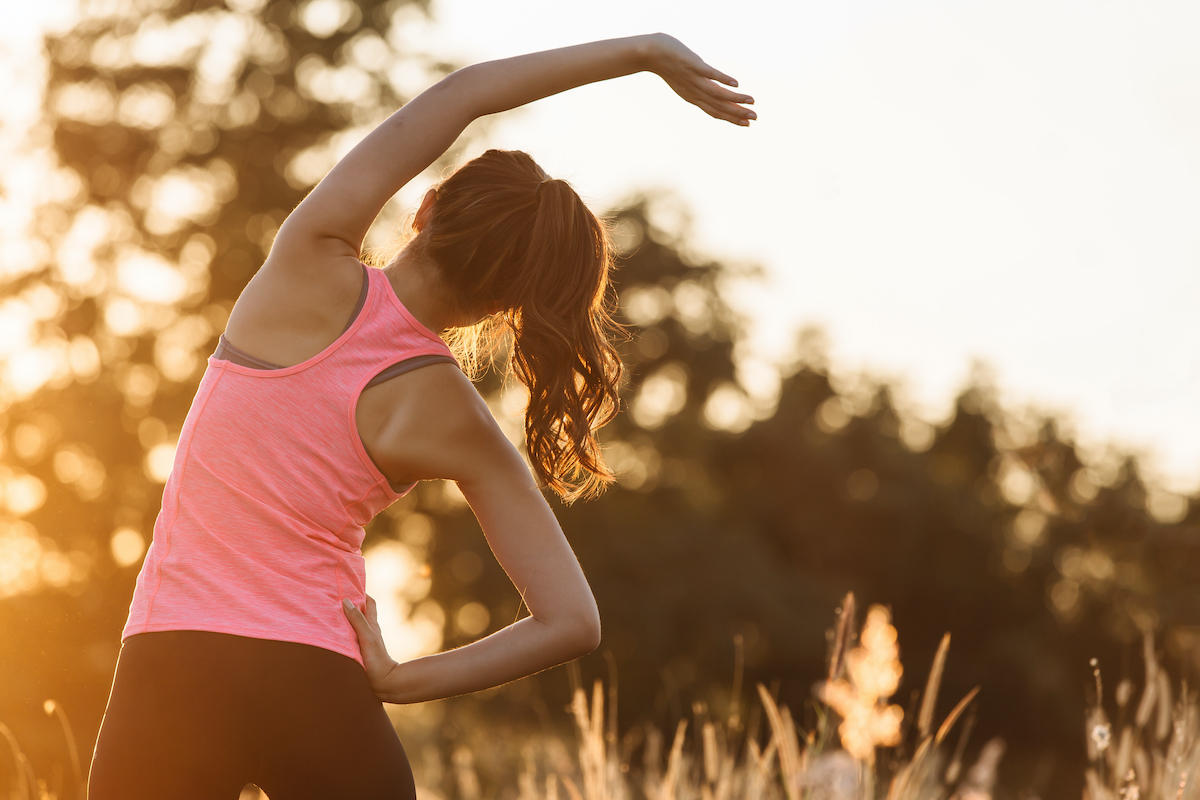
This research represents some of the most comprehensive work to date on the influence of high-intensity exercise on sleep, as well as the specific factors (such as time of day) at play. In a nutshell, the study's main findings can be summed up in a sentence: Exercise will promote better sleep in most people as long as it's completed with at least two hours to spare before bedtime.
"Overall, our analysis showed that when exercise ended two hours before bedtime, there were sleep benefits, including the promotion of sleep onset and increased sleep duration," says lead study author Emmanuel Frimpong, a postdoctoral fellow at the Sleep, Cognition and Neuroimaging Lab.
"On the other hand, when exercise ended less than two hours before bedtime, sleep was negatively impacted. It took longer for participants to fall asleep and sleep duration decreased," he adds.
It should be noted that this work is by no means a guarantee that exercising will help with sleep problems. The study authors stress that no two bodies are the same and there are many lifestyle and genetic factors that can affect sleep patterns. "When we reviewed the literature on this work, we found that there were a lot of mixed results," says Melodee Mograss, a cognitive neuropsychologist and researcher at the PERFORM Sleep Lab. "Some depended on the time of exercise, others on the fitness level of a study's participants, or even the type of exercise."
Related: Sign up for our newsletter for the latest health and fitness news!
How the research was conducted
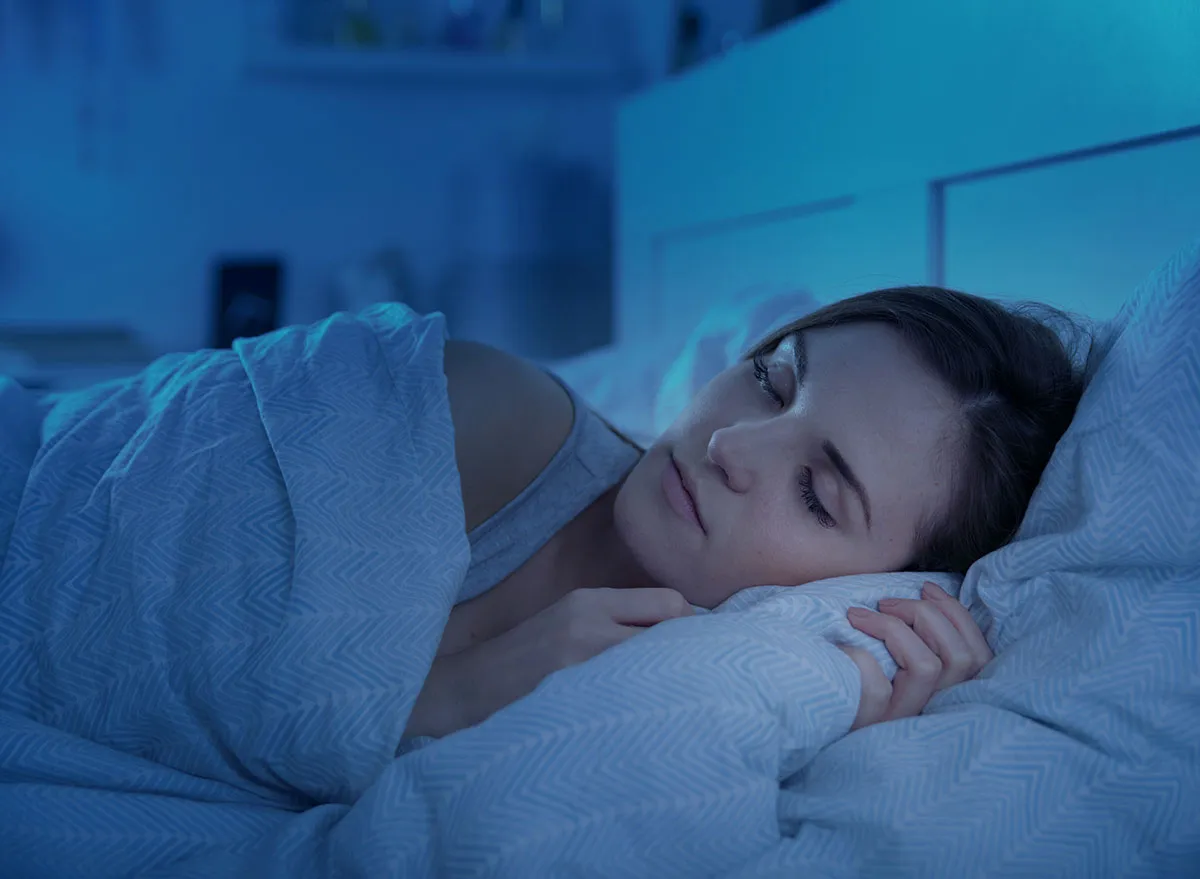
The team at Concordia University pooled together data from 15 prior relevant studies. They focused on generally healthy young and middle-aged adults and looked specifically at the impact of a single exercise session on that subsequent evening's sleep quality.
Statistical analysis was performed on the entire dataset to identify and examine various sleep/exercise variables including time of workout (early evening, late evening), the timing of workout in relation to bedtime (less than two hours, more than two hours), individual fitness level, intensity, duration, and specific exercises.
Related: One Major Side Effect Not Sleeping Enough Has on Weight Gain, New Study Says
The interesting affect on those who sit all day
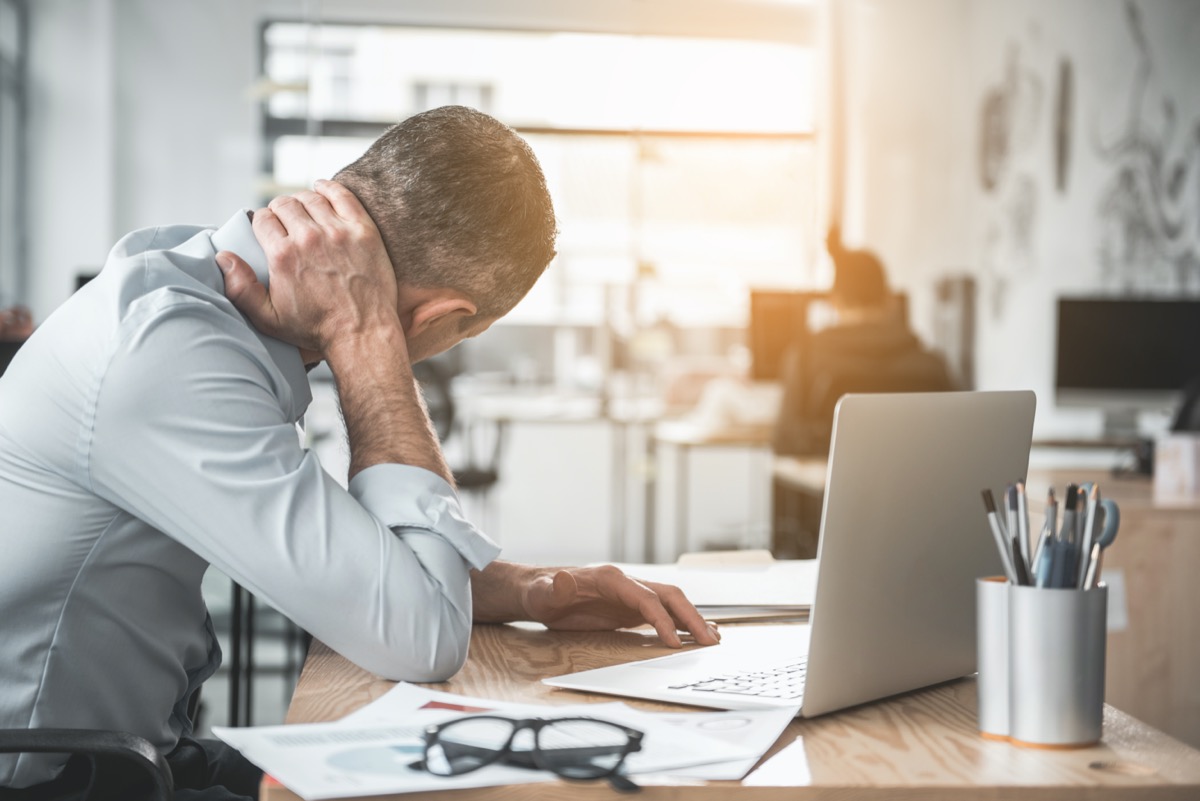
Notably, the research suggests that people who don't exercise regularly often have the most shuteye to gain from breaking a sweat. Adults living a largely sedentary lifestyle who exercised in the early evening (with ample time before bed) saw the biggest improvements in both sleep duration and the time it took to start snoozing.
Another important finding is that cycling appears to be the most beneficial exercise for promoting better, deeper sleep. Exercise sessions should also be kept to roughly 30-60 minutes.
Related: Four Great Indoor Cycling Workouts—No Peleton Required
Early evening is best, but find what works for you
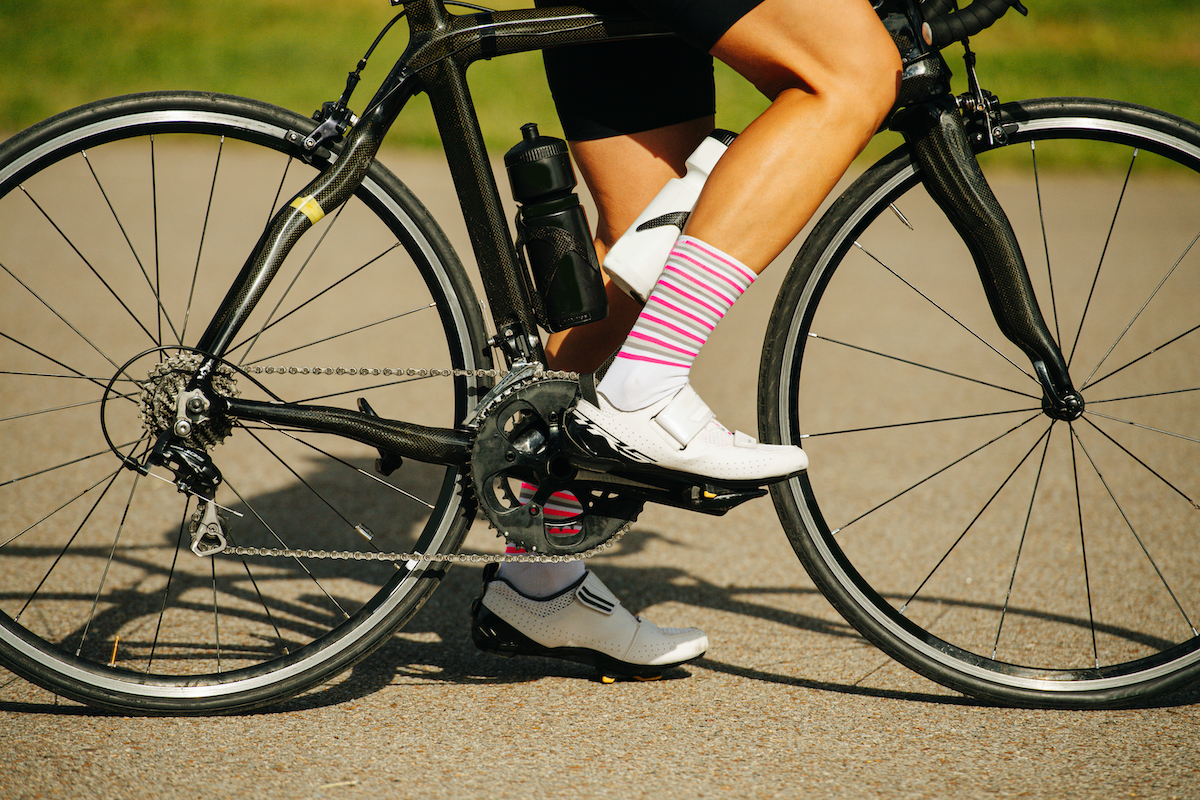
"Based on our review, for healthy, young and middle-aged adults with no history of sleep disorders, evening exercises should be performed in the early evening if possible," Frimpong notes.
At the end of the day, though, only you know your body and its natural sleep patterns. Researchers add the caveat that one should consider if they're a night owl or a morning bird. People naturally inclined to be productive in the AM may find even an early-evening exercise session keeps them up. For such individuals, a morning workout will likely foster the same sleep benefits a 7 PM workout would for a night owl who usually hits the sack well after midnight. It's all about finding the right exercise schedule that works for you—and sticking with it.
"Individuals should also keep to a consistent exercise schedule, as exercising at different times of the evening could cause sleep disturbances," Frimpong concludes. "And lastly, sleep hygiene strategies should also be carried out, such as taking a shower between the cessation of exercise and bedtime and avoiding eating heavy meals or drinking a lot of water before going to bed."
For more, check out Science Just Confirmed You Don't Need Cardio to Burn Fat.

